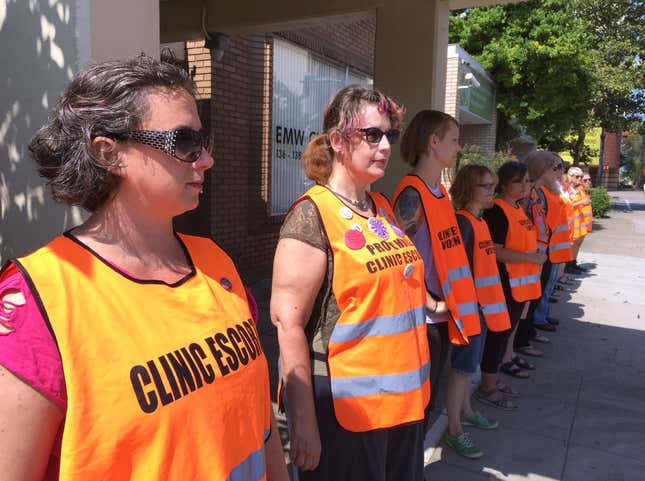Violence Aimed at Abortion Clinics Has Risen Dramatically
A new study, released as the Supreme Court overturned Roe v. Wade, tracked stalking, invasions, assaults, and more at clinics.
AbortionPolitics

On the same day the Supreme Court overturned Roe v. Wade, and with it our constitutional right to abortion, the National Abortion Federation (NAF) released its latest report on the state of violence and harassment aimed at abortion clinics. Despite suspected underreporting of many key anti-abortion tactics (likely due to pandemic closures), NAF found all types of violence increased.
In 2021, compared to 2020, NAF found:
- 600 percent increase of in-person stalking incidents across its U.S. clinics
- 450 percent increase in physical blockades
- 163 percent increase in hoax devices and suspicious packages
- 129 percent in clinic invasions
- 128 percent increase in assault and battery of staff
Each of these actions is purposefully threatening, intended to scare abortion seekers out of getting care and abortion clinics out of providing it. The goal is to make providers and patients alike think twice about coming to a clinic. In the last two years there were more than a quarter million—229,610—instances of picketing at clinics, for instance. Those mark 229,610 times the anti-abortion front tried to intimidate people out of their then-legal access to abortion.
But sometimes, staying outside with their little signs isn’t enough for anti-abortion protesters. In April, anti-abortion activists blocked a Michigan clinic entrance, with one person chaining themselves to the door with a bike lock, requiring police to cut it off. In Texas, a clinic reported a burglary where it appeared that someone broke in to look for patient charts right after the state’s six-week abortion ban went into effect.
-

-

-

-

-

-

-

-

-

-

-

-

-

-

-

-

-

-

-

-

-

-

-

-

-

-

-

-

-

-

-

-

-

-

-

-

-

-

-

-








































